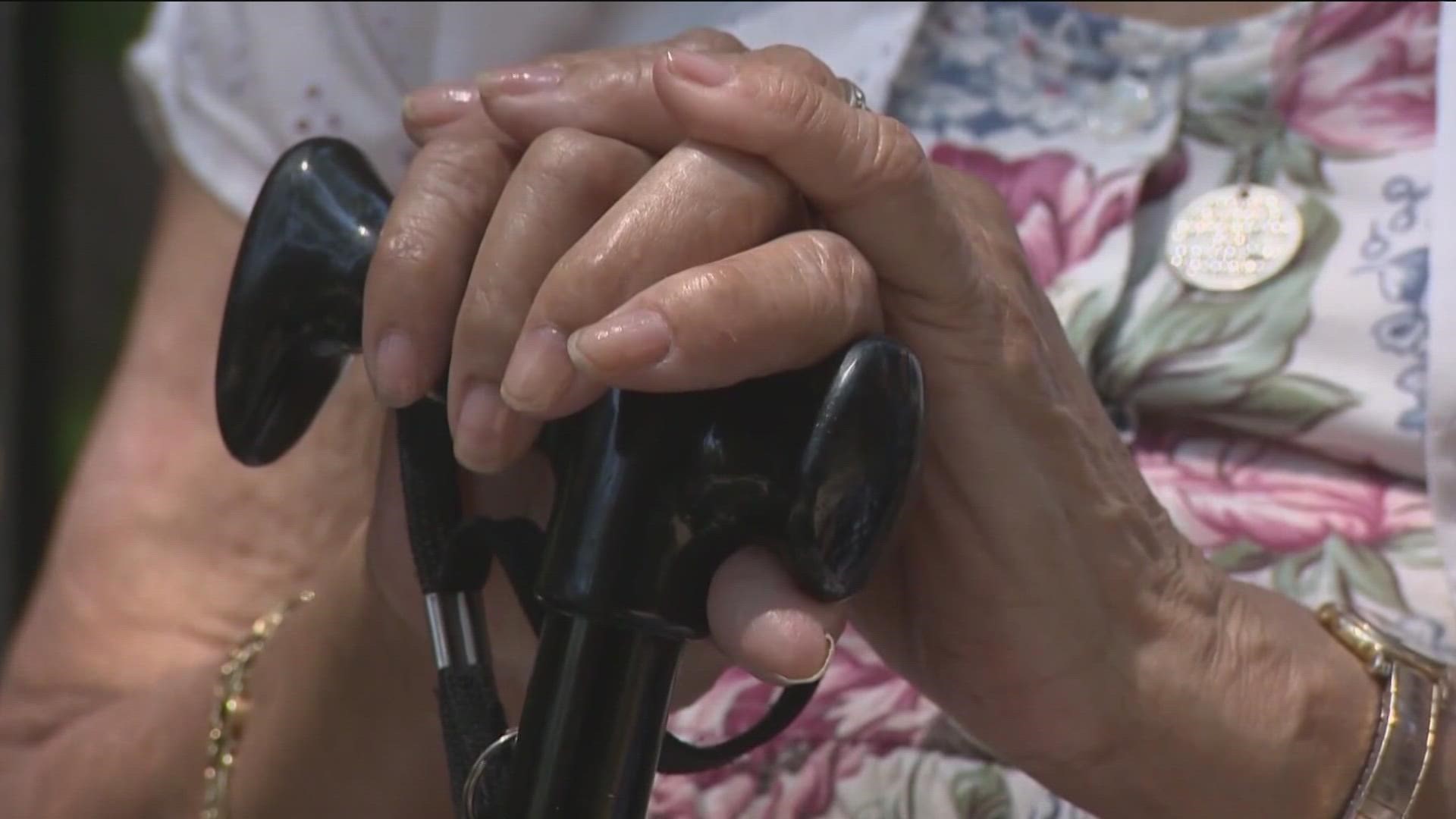TOLEDO, Ohio — Anyone who's witnessed the effects of Alzheimer's disease knows how severe it can be.
Alzheimer's affects memory and judgment of those who have it.
Unfortunately, at this time, there's no cure.
There has been progress in slowing the effects of Alzheimer's down however.
On Friday, the U.S. Food and Drug Administration gave accelerated approved on a new drug to fight it, only the second that has ever been approved.
The drug's name is lecanamab, which is being marketed as Leqembi.
Lecanamab was granted accelerated approval after it was shown to slow progression through the 3rd phase of its clinical trials.
With 6 million Americans currently diagnosed, Northwest Ohio's Alzheimer's Association Executive Director Julia Pechlivanos calls the drug a potential life changer and a great start in a fight for a cure.
"It is one element of ultimately treating Alzheimer's disease, but it's a start, so we're really excited about it," said Pechlivanos.
Pechlivanos said the drug slowed the decline of individuals by 27% compared to individuals who received a placebo. Pechlivanos said while 27% does not seem like a lot, it's 5% greater than the only other FDA-approved Alzheimer's drug, Aduhelm.
"It is a strong start that will eventually be a multi-drug cocktail that people will eventually be able to receive," said Pechlivanos.
However, she said these drugs are not appropriate for everyone, being more effective in people who are in the earlier stages Alzheimer's.
"It's called mild-cognitive impairment. It's really pre-dementia, or people who've just been diagnosed who have early-stage Alzheimer's," said Pechlivanos.
She goes on to say the new drug can help because it is shown to treat people who have been diagnosed with Alzheimer's but who haven't developed any symptoms.
"The earlier you begin treatment for Alzheimer's disease the more likely it is that you're going to have a better outcome with treatment," she said.
Pechlivanos also says this is not an end in fight against the disease.
"Ultimately one day we hope for a cure. But that's probably far in the future," she said.
Right now only Medicare recipients who are participating in clinical trials are eligible for the drugs.
On Friday, Dr. Joanne Pike and president and CEO of the Alzheimer's Association released a statement regarding making the medication more accessible:
“While this news is exciting, without insurance and Medicare coverage of this class of treatments, access will be limited to only those who can afford to pay out-of-pocket. The Alzheimer’s Association has submitted a formal request asking CMS to remove the requirement that Medicare beneficiaries be enrolled in a clinical trial in order to receive coverage of FDA-approved Alzheimer’s treatments.”
For more resources and support on the Alzheimer's Association visit their website here.

